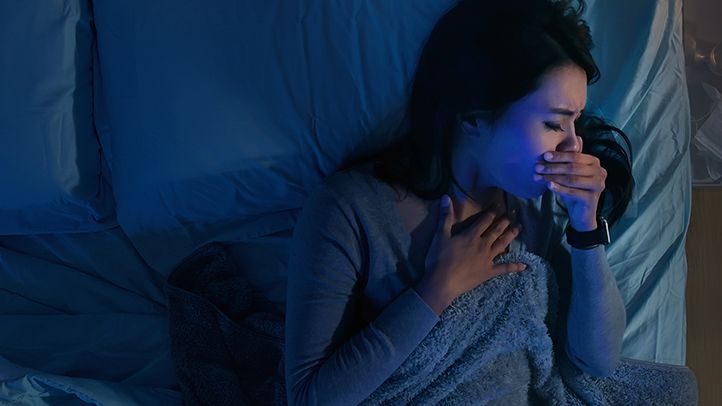Coughing at night can be a frustrating and disruptive experience, not only for the person experiencing it, but also for anyone trying to sleep nearby. A cough can be caused by a variety of factors, including allergies, infections, and even certain medications. In this article, we will explore the symptoms of coughing at night and the treatment options available to help alleviate them.
Symptoms of Coughing at Night
The most obvious symptom of coughing at night is, of course, the cough itself. This can range from a dry, hacking cough to a wet, productive cough, depending on the underlying cause. Other symptoms may include:
Shortness of breath: If you find yourself struggling to catch your breath when coughing at night, this could be a sign of a more serious condition such as asthma or bronchitis.
Sore throat: A sore throat can be caused by the repeated irritation of coughing, and may be accompanied by pain or discomfort when swallowing.
Chest pain: Some individuals may experience chest pain when coughing at night, which can be caused by a variety of factors including inflammation or infection.
Fatigue: Coughing at night can disrupt sleep, leading to fatigue during the day.
Congestion: A stuffy nose or chest congestion may be present if the cause of the cough is related to a cold or allergy.
Causes of Coughing at Night
There are many possible causes of coughing at night, including:
Allergies: Allergic reactions to dust, pollen, or mold can cause a cough at night.
Respiratory infections: Common respiratory infections such as the cold or flu can cause a cough as the body tries to clear the infection.
Asthma: Asthma is a chronic condition that causes inflammation and narrowing of the airways, leading to coughing and shortness of breath.
Gastroesophageal reflux disease (GERD): GERD is a condition where acid from the stomach flows back into the esophagus, causing irritation and coughing.
Medications: Certain medications such as blood pressure drugs and opioids can cause a dry cough as a side effect.
Treatment for Coughing at Night
Treatment for coughing at night will depend on the underlying cause. Here are some of the most common treatment options:
Allergies: If the cause of the cough is related to allergies, over-the-counter antihistamines can be used to alleviate symptoms. A saline nasal spray can also be used to relieve congestion.
Respiratory infections: Antibiotics may be prescribed if a bacterial infection is suspected. Over-the-counter decongestants can also be used to alleviate congestion.
Asthma: Inhaled bronchodilators and corticosteroids can be used to open up the airways and reduce inflammation.
GERD: Antacids and proton pump inhibitors can be used to reduce acid reflux and alleviate symptoms.
Medications: If a dry cough is caused by a medication, switching to a different medication may be necessary.
In addition to these treatment options, there are also lifestyle changes that can be made to alleviate coughing at night. This can include avoiding triggers such as smoke and dust, staying hydrated, and using a humidifier to keep the air moist.
It is important to note that if your cough persists or becomes more severe, it is important to seek medical attention. A persistent cough can be a sign of a more serious condition such as pneumonia or lung cancer, and early detection is key to effective treatment.

 Home
Home Health
Health Diet & Nutrition
Diet & Nutrition Living Well
Living Well More
More












